Secrets to Crafting Unforgettable Characters in RPGs
8 February 2025
When it comes to role-playing games (RPGs), we all know the story’s only as good as the characters that breathe life into it. Whether you’re developing a tabletop RPG campaign, designing a video game, or simply writing your own piece of fiction, creating characters that are memorable, relatable, and immersive is no small task. But here’s the good news: crafting unforgettable characters isn’t some arcane art known only to storytelling wizards. With a little strategy and a pinch of creativity, you too can create characters that resonate with your audience and linger in their minds long after the credits roll.
So how do you do it? Let’s dive into the secrets of crafting compelling characters for RPGs.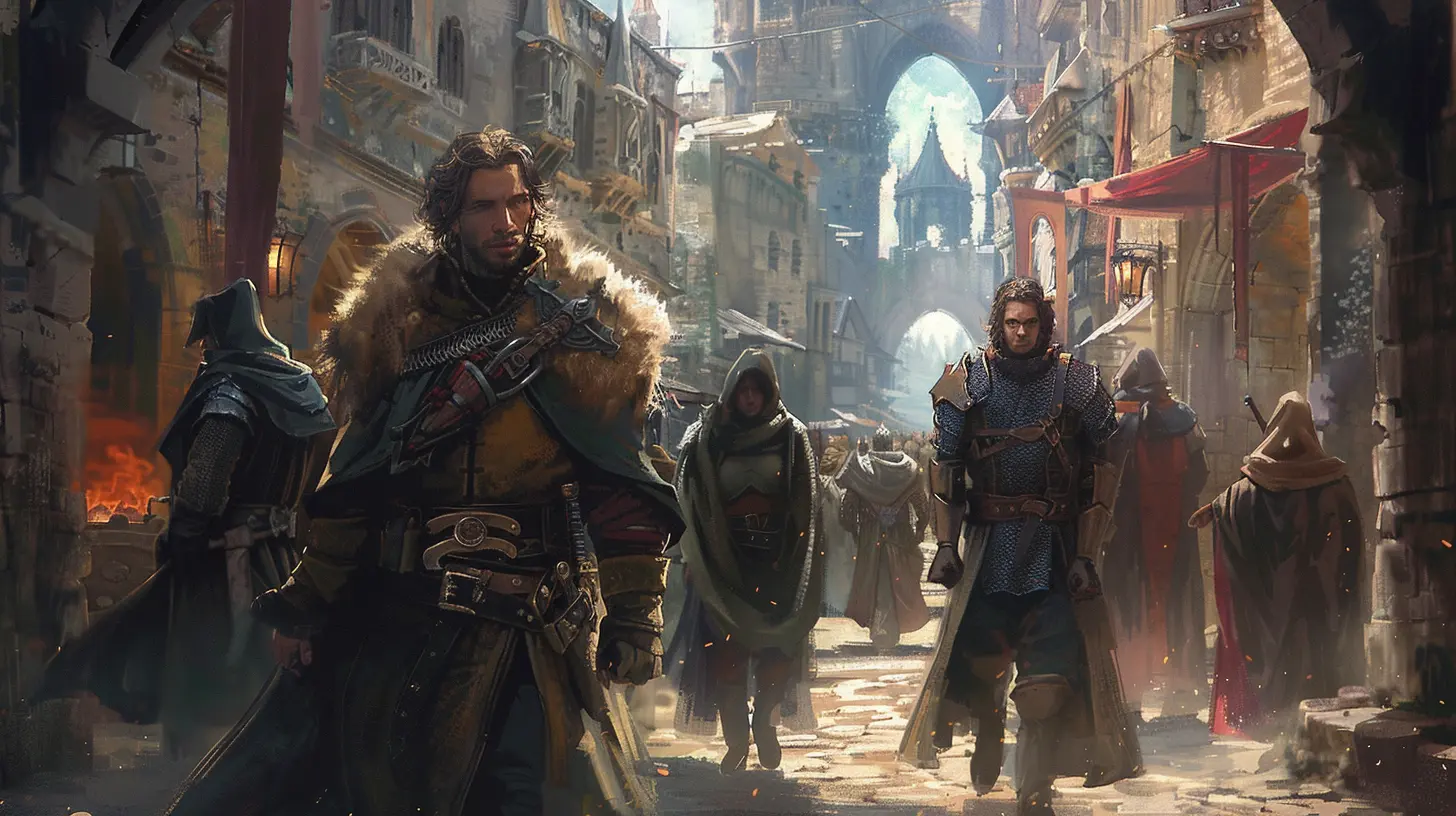
1. Start with a Strong Backstory
Ever heard the phrase, “Every hero has a story”? It’s true. A character’s backstory serves as the foundation of their personality, motivations, and actions. Think about it: Is your character a battle-scarred warrior haunted by their past? Or maybe they’re a wide-eyed scholar desperate to prove themselves?A solid backstory doesn’t have to be an epic novel, but it should answer key questions like:
- Where did they come from?
- What shaped their beliefs and values?
- What are their biggest hopes, dreams, and fears?
The more fleshed out their past is, the more natural their actions and decisions will feel in the present. Plus, players are suckers for a tragic, mysterious, or uplifting backstory—it gives them something to emotionally latch onto.
Pro tip: Don’t reveal every single detail about their backstory upfront. Sprinkle clues and hints throughout the story to keep players intrigued. Think of it as leaving breadcrumbs for your audience to follow.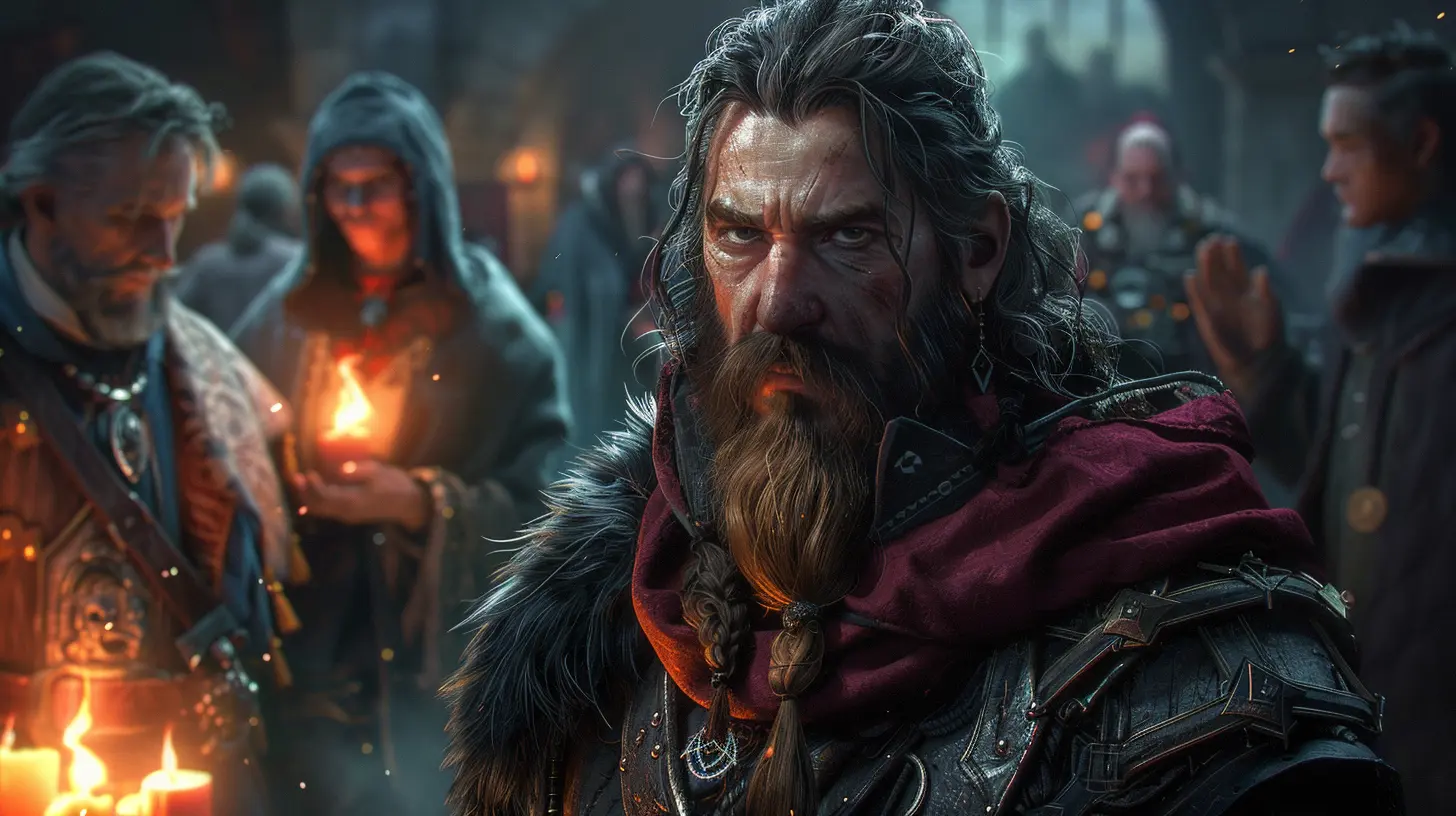
2. Make Them Flawed, but Lovable
Perfect characters are boring. Seriously. If your character is good at everything, has zero insecurities, or never makes mistakes, they’re going to feel artificial. People (and players) love characters they can relate to—flaws and all.Maybe your stoic ranger has crippling self-doubt. Perhaps your charismatic bard talks their way out of danger but struggles to form meaningful relationships. These imperfections make characters feel human (or elf, or dwarf, or whatever species they are) and give players something to root for.
Want to make those flaws even juicier? Tie them directly to the plot. For instance, if your character has a fear of failure, force them into situations where they’re responsible for leading others. Watching them struggle and grow will keep your audience hooked.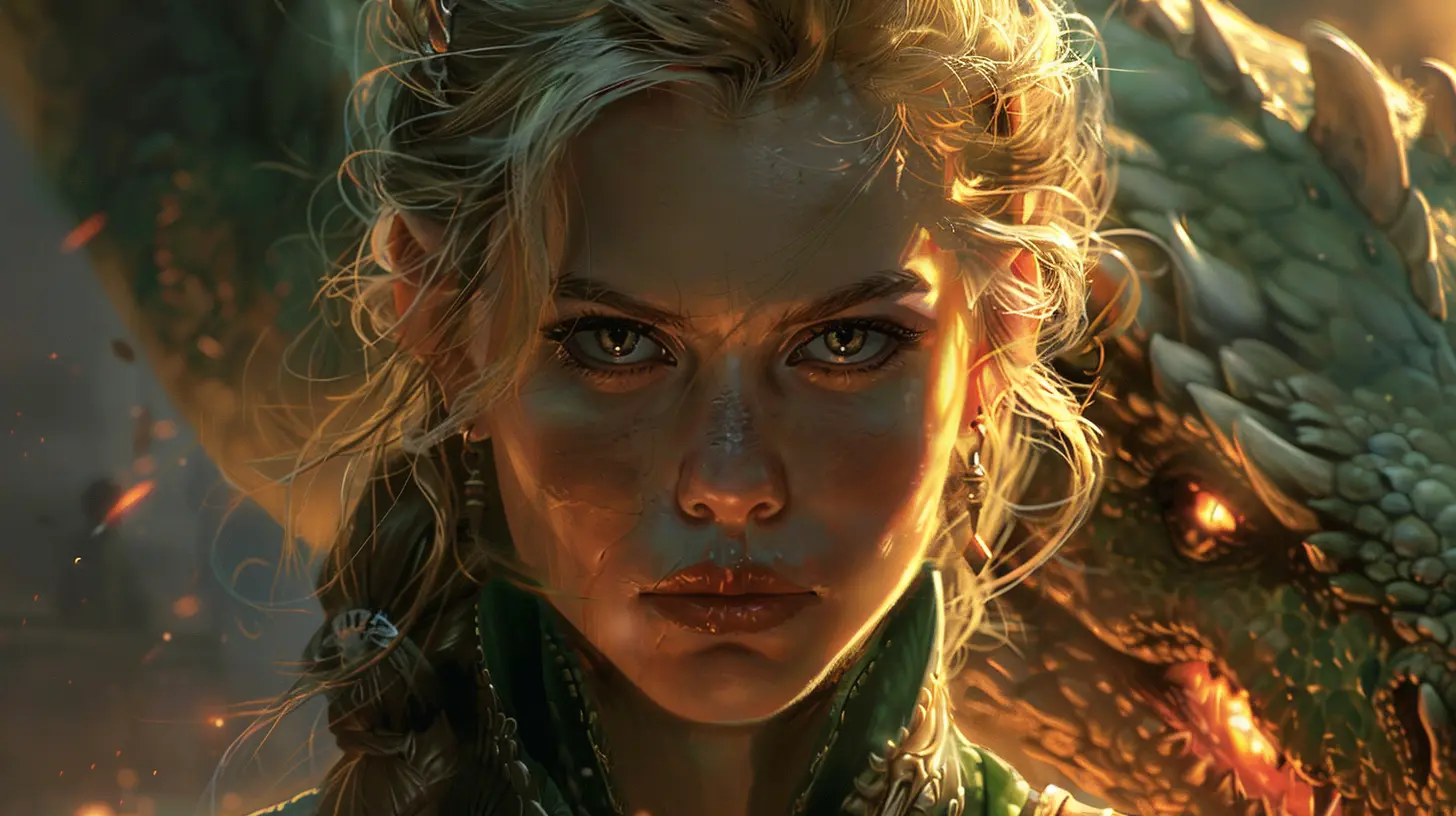
3. Give Them Clear Goals and Motivations
Imagine playing an RPG where the main character doesn't seem to want anything. No treasure to seek, no revenge to exact, no redemption arc to follow—it would be a snoozefest, right? Goals are what drive characters forward and give meaning to their actions.Ask yourself:
- What does your character want more than anything in the world?
- Why do they want it?
- What obstacles stand in their way?
For example, let’s say you’ve got a rogue who’s trying to steal a magical artifact. On the surface, it might seem like a straightforward goal, but dig deeper. Maybe they want the artifact to trade for the cure to save their dying sibling. Boom—suddenly, the stakes are higher, the goal is more personal, and your audience is emotionally invested.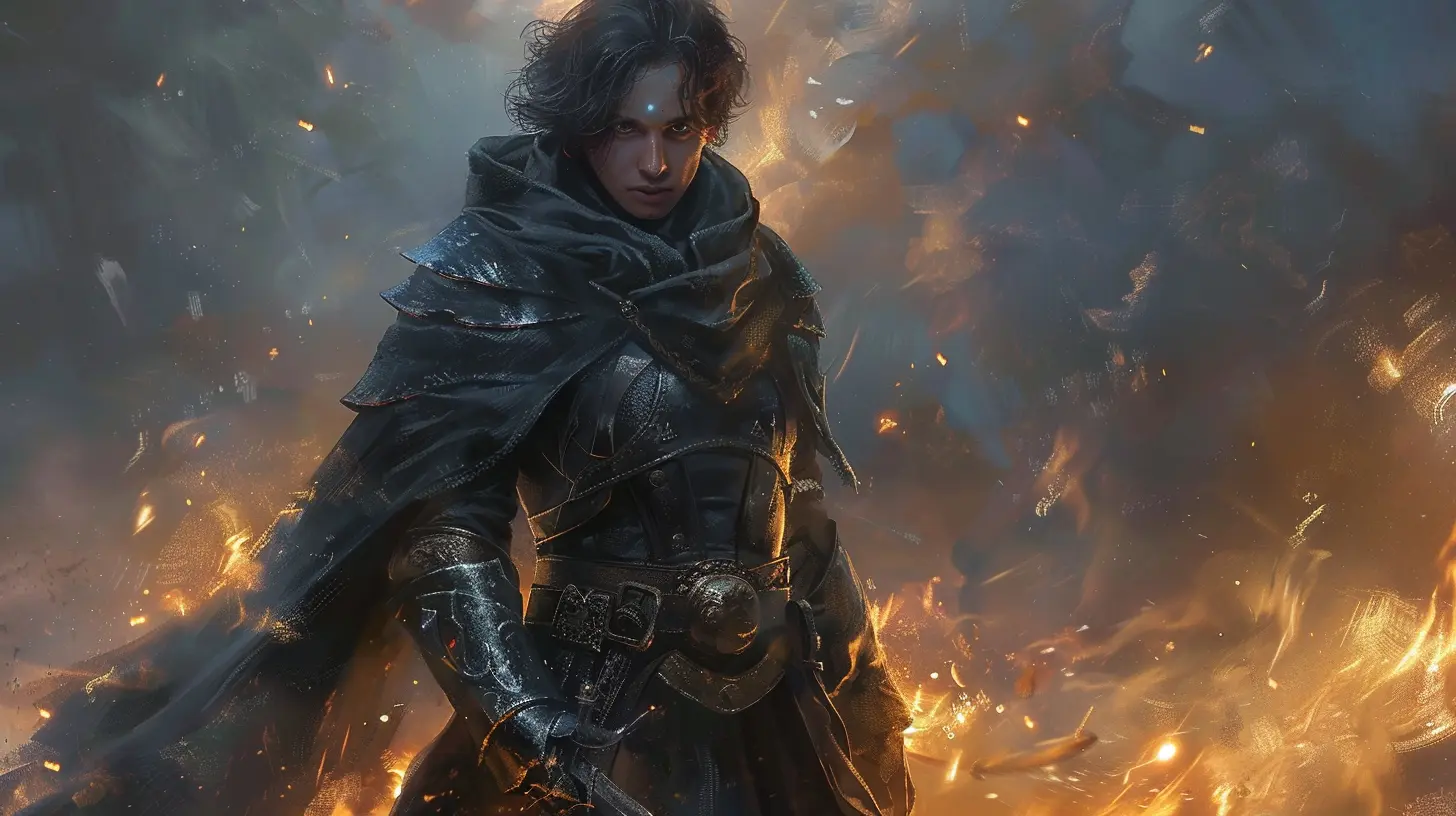
4. Build Unique Personalities
Think about your favorite RPG characters. Chances are, they stand out because they have quirks, habits, and mannerisms that make them one-of-a-kind. A grumpy wizard who’s obsessed with tea? A paladin who cracks dad jokes during battle? These small details make characters come alive.When developing your character’s personality, consider:
- How do they talk? (Do they use slang, or are they more formal?)
- What are their likes and dislikes?
- How do they react under stress?
One trick I like to use is imagining how my characters would act in everyday situations. For example, if they walked into a tavern, would they head straight for the bar, strike up a song with the bard, or brood in the corner? Visualizing scenes like this can help you nail down their personality.
5. Tap Into Emotional Depth
The best characters make you feel something. Whether it’s love, anger, admiration, or even pity, emotion is what creates a connection between your audience and your character. But to tap into that emotional depth, you need to be willing to dig deep.Ask yourself:
- What are your character’s greatest fears?
- What secrets are they hiding?
- Who or what would they sacrifice everything for?
Let’s say you’re crafting a villain. Sure, they could be evil for the sake of being evil, but wouldn’t they be far more compelling if their motives were rooted in something personal? Maybe they’re trying to save their family by any means necessary, even if it means becoming the monster they once vowed to fight. Emotional vulnerability doesn’t just make protagonists shine—it works for every type of character.
6. Create Dynamic Relationships
A character doesn’t exist in a vacuum. How they interact with others can reveal layers of depth and complexity that solo moments just can’t achieve. Whether it’s friendships, rivalries, or romance, relationships are where characters truly shine.For example, does your stoic knight have a soft spot for their quirky sidekick? Maybe your villain shares a sibling-like bond with one of the heroes, creating inner conflict on both sides. Dynamic relationships not only add richness to your character but can also drive the story forward.
Pro tip: Pay attention to banter. Snappy, heartfelt, or humorous dialogue between characters is often what players remember most.
7. Give Them Room to Grow
Put simply, nobody likes a static character. Growth and change are what make stories compelling. Your hero doesn’t need to start as the ultimate paragon of morality, nor does your villain need to stay evil to the bitter end. Real people evolve—and your characters should too.Character growth often stems from conflict, failure, or self-discovery. Maybe your reckless warrior learns to value caution after losing a close ally. Or perhaps your selfish thief learns the meaning of loyalty over time. Whatever the arc, it should feel authentic and earned, not forced or rushed.
8. Don’t Shy Away from Humor
Let’s be real: RPGs can get pretty intense. Between epic battles, dramatic betrayals, and world-ending stakes, things can get heavy fast. That’s where humor comes in. Even the most serious characters can benefit from a well-timed joke or an awkward moment—it makes them feel relatable.Take a page from iconic RPGs like "The Witcher" or "Mass Effect." Even during high-stakes missions, characters crack jokes, bicker, or share lighthearted banter. These moments of levity keep players entertained while also making the darker moments hit even harder.
9. Design Characters with the Gameplay in Mind
This tip mostly applies to video games and tabletop RPGs, but it’s an important one. A character’s abilities, strengths, and weaknesses should complement their personality and backstory. For instance, if your druid has a deep connection to nature, it makes sense for their skillset to include healing, summoning animals, or manipulating the environment.At the same time, don’t feel like gameplay mechanics need to dictate everything about your character. A barbarian who’s also a poet? Sure, why not? Sometimes, the most memorable characters come from breaking conventions.
10. Let Players Leave Their Mark
If you’re developing characters for a game, remember that players often enjoy shaping the story in some way. Whether it’s through dialogue choices, moral decisions, or branching storylines, giving players agency over how characters interact and develop can create a deeper sense of connection.For example, maybe your NPC rogue starts off as a loner but opens up to the player over time if they show kindness. Or perhaps their fate depends on the choices the players make—will they survive to complete their arc, or meet an untimely end? Allowing for this kind of player-driven storytelling makes your characters even more memorable.
Final Thoughts
Crafting unforgettable RPG characters is all about striking a balance between relatability, depth, and originality. The more thought and care you put into their personalities, backstories, and relationships, the more likely they are to stick with your audience. And remember, at the end of the day, characters don’t have to be perfect—they just have to feel real. So grab your notebook (or laptop), let your imagination run wild, and start building the next iconic RPG character. Who knows? They might even become the next breakout fan favorite.all images in this post were generated using AI tools
Category:
Role Playing GamesAuthor:

Emery Larsen
Discussion
rate this article
9 comments
Poppy Barron
Absolutely loved this article! Crafting unforgettable characters in RPGs truly transforms the gaming experience. The tips shared are both insightful and inspiring. Can’t wait to implement these secrets in my next gaming session! Here’s to creating heroes and villains that will be remembered for ages. Happy gaming, everyone! 🎮✨
April 8, 2025 at 3:59 AM

Emery Larsen
Thank you for your kind words! I'm thrilled you found the tips helpful. Happy gaming and may your characters leave a lasting impact! 🎮✨
Runehart Bennett
This article adeptly highlights the essential elements of character crafting in RPGs, emphasizing depth through backstory, motivations, and relationships. By blending unique traits with relatable flaws, developers can create memorable characters that resonate with players. The insights provided serve as a valuable guide for both novice and experienced game designers alike.
March 11, 2025 at 3:45 PM

Emery Larsen
Thank you for your thoughtful feedback! I'm glad you found the insights helpful for both novice and experienced game designers. Happy crafting!
Tyler Bennett
This article brilliantly highlights the essence of character depth and relatability in RPGs. Emphasizing backstory and player choices truly elevates the gaming experience, making these characters unforgettable. Great insights!
March 1, 2025 at 6:08 PM

Emery Larsen
Thank you for your kind words! I'm glad you found the insights valuable—character depth truly makes all the difference in RPGs.
Isabella McFee
Creating unforgettable RPG characters hinges on authenticity and depth. It's not just about their stats or quests, but the complexities of their emotions and motivations. When players see reflections of themselves in these characters, the experience transcends gaming—transforming into a profound journey of self-discovery.
February 23, 2025 at 3:43 PM

Emery Larsen
Absolutely! Authenticity and emotional depth are key to making RPG characters resonate with players, turning gameplay into a meaningful journey of self-discovery.
Lisette McLaury
Crafting unforgettable characters is the heartbeat of any RPG! Dive deep into their motivations, histories, and relationships. Remember, it's not just about stats; it’s about stories that resonate and adventures that linger in players' hearts!
February 22, 2025 at 5:53 AM

Emery Larsen
Absolutely! Characters with rich backstories and meaningful connections truly enhance the RPG experience, making the journey memorable for everyone involved.
Rachael Shaffer
Great insights! Crafting unforgettable RPG characters truly enhances storytelling. Personal backstories and unique quirks can elevate player engagement and make the game more immersive.
February 19, 2025 at 5:24 AM

Emery Larsen
Thank you! I'm glad you found it insightful. Personal backstories and quirks indeed play a crucial role in enriching the RPG experience!
Kane McLain
Great tips for memorable heroes!
February 18, 2025 at 5:31 PM

Emery Larsen
Thank you! I'm glad you found the tips helpful for creating memorable heroes!
Dixie Garcia
Creating unforgettable characters in RPGs hinges on depth and relatability. Start with a compelling backstory that influences their motivations, and give them distinct traits and flaws. Ensure they evolve throughout the game, reflecting player choices. Finally, intertwine their personal quests with the main narrative to enhance emotional investment.
February 17, 2025 at 4:05 AM

Emery Larsen
Absolutely! Depth, relatability, and player-driven evolution are key. A strong backstory, unique traits, and intertwining personal quests with the main narrative can truly make characters unforgettable.
Hadley Baxter
Great insights! These tips will truly enhance character development in RPGs.
February 9, 2025 at 3:59 AM

Emery Larsen
Thank you! I’m glad you found the tips helpful for enhancing character development!
MORE POSTS

Exploring the Intersection of Art and Code in Video Game Creation

The Evolution of Indie Games on Kickstarter
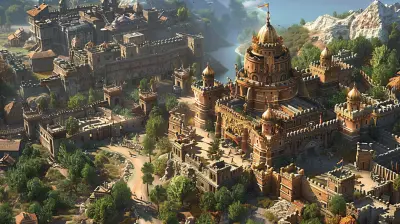
The Most Underrated Real-Time Strategy Titles You Need to Play

Advocacy Through Play: Board Games that Address Social Issues
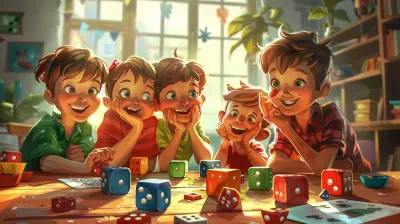
The Ultimate Guide to Building Strong Friendships Through Social Games

Exploring the Role of Storytelling in RTS Campaigns

Capitalizing on Your Opponent’s Mistakes in Competitive Strategy Games